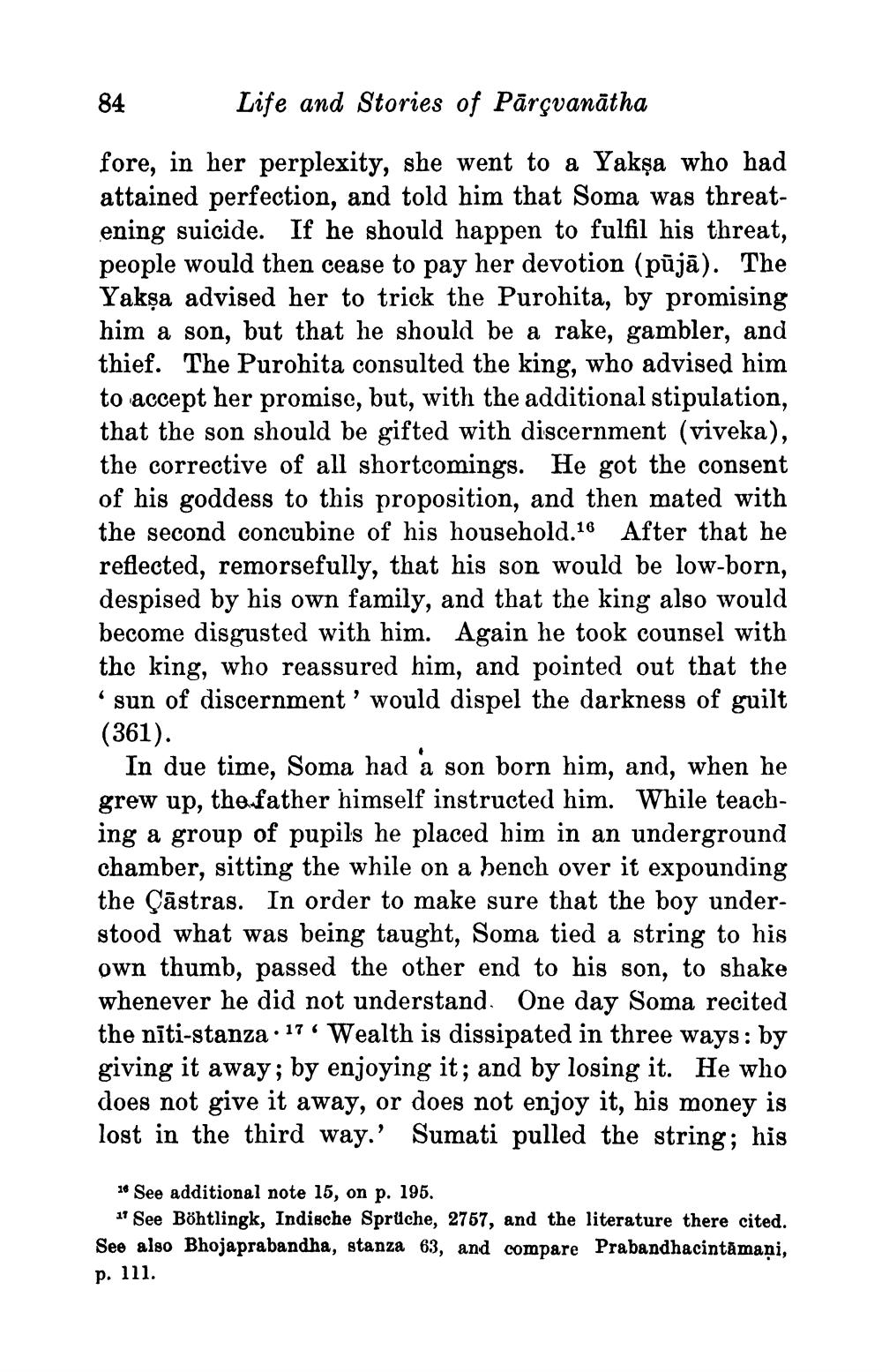________________
84
Life and Stories of Pārçvanātha
fore, in her perplexity, she went to a Yakşa who had attained perfection, and told him that Soma was threatening suicide. If he should happen to fulfil his threat, people would then cease to pay her devotion (pūjā). The Yakşa advised her to trick the Purohita, by promising him a son, but that he should be a rake, gambler, and thief. The Purohita consulted the king, who advised him to accept her promise, but, with the additional stipulation, that the son should be gifted with discernment (viveka), the corrective of all shortcomings. He got the consent of his goddess to this proposition, and then mated with the second concubine of his household.16 After that he reflected, remorsefully, that his son would be low-born, despised by his own family, and that the king also would become disgusted with him. Again he took counsel with the king, who reassured him, and pointed out that the * sun of discernment'would dispel the darkness of guilt (361).
In due time, Soma had à son born him, and, when he grew up, the father himself instructed him. While teaching a group of pupils he placed him in an underground chamber, sitting the while on a hench over it expounding the Çāstras. In order to make sure that the boy understood what was being taught, Soma tied a string to his own thumb, passed the other end to his son, to shake whenever he did not understand. One day Soma recited the nīti-stanza · 17 Wealth is dissipated in three ways: by giving it away; by enjoying it; and by losing it. He who does not give it away, or does not enjoy it, his money is lost in the third way.' Sumati pulled the string; his
** See additional note 15, on p. 195.
17 See Böhtlingk, Indische Sprüche, 2757, and the literature there cited. See also Bhojaprabandha, stanza 63, and compare Prabandhacintamani, p. 111.




